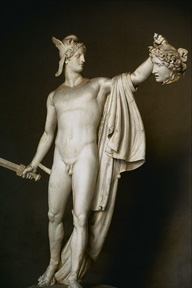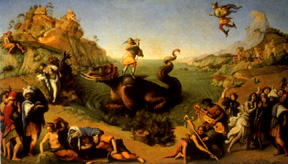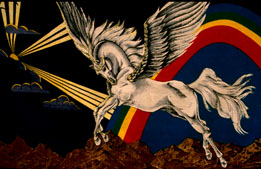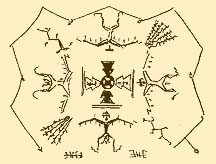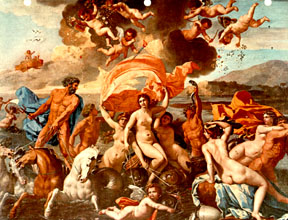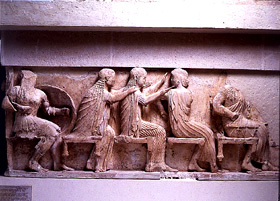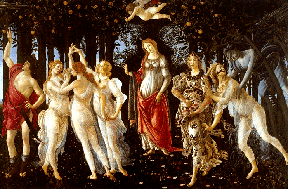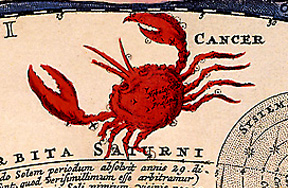Click on image for full size
Image courtesy of Corel Corporation.
Related links:
Perseus
Perseus was an ancient Greek hero. His mother was Danae, the daughter of the king of Argos, Acrisius. When a prophecy revealed to Acrisius that his grandson would kill him, he imprisoned his daughter Danae in a bronze underground chamber to keep her chaste. Zeus, however, fooled Acrisius' precautions by entering the prison disguised as a shower of gold. When Acrisius discovered that Danae had given birth to Perseus , he had her and the newborn thrown into the sea in a chest of wood.Luckily they were rescued by a fisherman of the island of Seriphos. The fisherman was the brother of king of Seriphos, Polydectes. He took the woman and her child to the royal palace where the king offered them hospitality and protection. Perseus grew up on the island and became a courageous young man.
Polydectes fell in love with Danae, but she rejected his advances. Hoping to overcome her resistance, Polydectes sent Perseus on a dangerous mission to get rid of him. Perseus had to fetch the head of the Gorgon Medusa. Instead of hair Medusa had serpents on her head and anyone who looked at her horrific features was turned into stone. Nevertheless, with the help of Athena and Hermes, Perseus managed to kill Medusa.
On his voyage back to Seriphos, he met Andromeda in Ethiopia and married her. In Seriphos, he rescued his mother and overthrew Polydectes. When his triumph became known, he was invited to the city of Larissa to participate to funeral games in honor of the king of that city.
During the games, Perseus threw a discus which accidentally hit his grandfather Acrisius, who was watching the games, unaware of his grandson's presence.
Acrisius died fulfilling the prophecy.


